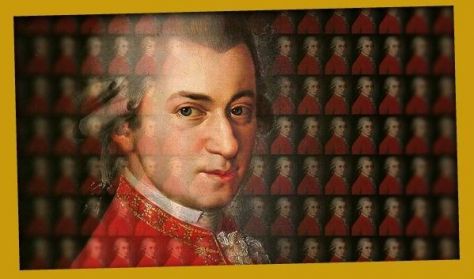
Mozart Day – 4
Wolfgang Amadeus Mozart: Piano Quartet in G minor, K. 478
Wolfgang Amadeus Mozart: Piano Quartet in E-flat major, K. 493
more

Wolfgang Amadeus Mozart: Piano Quartet in G minor, K. 478
Wolfgang Amadeus Mozart: Piano Quartet in E-flat major, K. 493
more
Ön egy múltbeli eseményre keresett rá. Kérjük, válogasson aktuális kínálatunkból a Jegy.hu keresőjében!
Last event date on this page: Sunday, March 10 2019 2:30PM
2.30 pm Solti Hall – Mozart Day – 4
Wolfgang Amadeus Mozart: Piano Quartet in G minor, K. 478
Wolfgang Amadeus Mozart: Piano Quartet in E-flat major, K. 493
Feraturing: Dezső Ránki, András Keller, Máté Szűcs, László Fenyő
Wolfgang Amadeus Mozart: Piano Quartet in G minor, K. 478
The Piano Quartet in G minor, penned in Vienna, dates from autumn 1785. It was published by Hoffmeister. There was barely any interest in the work so the publisher asked Mozart to write “more popularly, in an easily intelligible” language. Each part of the composition represented a serious technical challenge and only a few amateurs of the period were prepared to undertake the work. Mozart created a specific blend of chamber music and concerto texture, in which it allocated an independent function and role to every instrument. In Mozart, the G minor key generally represents dark tones, dramatic events and the pathétique manner, and this goes for this composition, too. This is specifically true of the opening Allegro. The illumination and radiance of the second movement counterpoints the more sombre world of the first part; the closing movement is in G major.
Wolfgang Amadeus Mozart: Piano Quartet in E-flat major, K. 493
This piano quartet was written in Vienna in June 1786 (around the time of the composition of The Marriage of Figaro). Its general tone is fundamentally cheerful. In many respects its first movement resembles the Piano Concerto in E-flat major (K. 482), characterized by flowing thematic invention and generous formation. The Larghetto in the especially dreamlike key of A-flat major is one of the most beautiful examples of confessional, intimate Mozartian slow movement, a grandiose sonata form in the coda of which the composer evokes the moving gestures of veiled farewells. The closing movement is one of the few pieces that Mozart made later changes to: instead of the original predominantly contrapuntal concept, he made do with contrapuntal episodes. The virtuosity of the grandiose piano fantasies is also evoked in parts.
Egyszerre politikai dráma, krimi és szerelmi história, amely a 15. század közepének izgalmas történelmi eseményeit eleveníti meg, bemutatva a Hunyadi család felemelkedését.
A gödöllői Erzsébet királyné fénykert visszatér – még nagyobb, még fényesebb és még varázslatosabb, mint valaha.
Áprilistól Rebecca musical az Erkelben, ahol a szerelem, titkok és egy kísérteties múlt árnyékolja be Manderley falait. Jegyek már kaphatók!
Több mint 150 éve hódítja meg a közönséget mindenhol a világon ez a francia féltékenységi bohózat, amit a Nemzetibe időről…
Közel két évszázada ad reményt és erőt „e rút világban” Liliomfi és Mariska minden ukázt felülíró szerelme, Szellemfi játékkedve és…

item(s) in basket
total:
Time limit has expired. Please, put item(s) in to basket again.